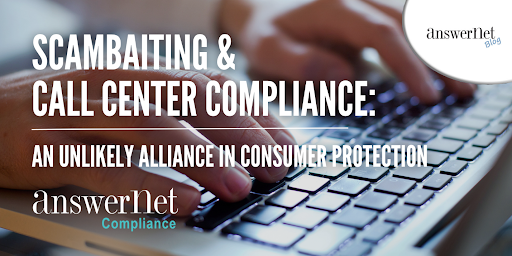Over the years, as a PACE Customer Engagement Compliance Professional (CECP), I have audited dozens of companies for their compliance with telemarketing laws. As you may be aware, the landscape of telemarketing laws can be very complex, with federal regulations written by the FCC and FTC along with considerations for state-specific requirements.
Since these laws are ever-changing, keeping up can be a daunting task. I want to share some observations working with many different companies. Here’s the good, bad, and ugly with telemarketing laws.
The Good
DNC Telemarketing Laws
The good news is that most companies seem to have a good handle with specific areas of telemarketing laws. One of those areas is Do Not Call (DNC) compliance. Since its inception in 2003, the Do Not Call Registry, and the set of rules associated with it has been a big focus for most companies making outbound dials.
Calling a person on the DNC list is a quick way to generate a complaint to the FTC, which no company wants to have happen. As a result, most companies have spent the time to make sure that the proper scrubbing is taking place with Federal and State DNC lists.
Knowing how to place a person on a DNC list is essential, so companies also make sure they have a solid DNC policy and training that ensures all employees understand what to do and how to do it.
Robocalls
The other area that generates the most complaints to the FTC is robocalls.
Consumers hate robocalls. Consumers don’t want to receive a random robocall, especially from a company they have never heard of, especially if the consumer can’t figure out how to get themselves removed from future dialing.
The companies that I have audited have done a great job analyzing the telemarketing campaigns they will be dialing and only using robocalling technology when appropriate. In many cases, robocalling is avoided because of the negative response that consumers could have (and complaints that could follow!).
The Bad
Prior Express Written Consent
There are a few areas that companies seem to struggle with regarding telemarketing laws. One of the first areas is gathering the proper level of consent from a lead/consumer.
To make a sales call to a wireless or VoIP phone number using an ATDS, Prior Express Written Consent (PEWC) is required. However, what does the consent language need to contain, and how should it appear on the page?
Unfortunately, from my audits, it is apparent that many companies don’t know how to answer these questions fully. As a result, calling someone without the proper level of consent can be very risky.
It’s also worth noting that consumers are expecting more and more these days to control what kinds of calls (and emails/texts) they receive from a company. Giving consumers options on how they can be communicated with for various reasons and capturing the right level of consent is vital to avoid complaints.
State Specific Telemarketing Laws
The other area that I have found that seems to be overlooked by companies I have audited is the state-specific requirements, from state registration to script disclosures to permissible call times.
Most companies understand telemarketing laws from a federal level. Still, when asked about compliance at the state level, many have not taken the time to review the laws and exemptions for each state. This can be very time-consuming but also very important to stay compliant.
Compliance Auditing
The other area that surprises me the most is the lack of a robust compliance auditing program. Granted, this is not necessarily a telemarketing law but more like a best practice.
With all the time and energy put into writing policies, procedures, and training around telemarketing laws, you would think that there would also be a method in place to make sure that everyone is following it. But, unfortunately, I found that this is not always the case.
Setting up a reoccurring time to review all policies and procedures and to review exception reports often to make adjustments as needed can save your company from making mistakes that can cost some serious money in fines and litigation.
The Ugly
Risky Business
This brings me to my last point: it can be risky if companies don’t take telemarketing laws seriously.
The most significant risk, of course, is the loss of money due to fines and/or litigation. A quick Google search will show many instances where a company didn’t make calls with PEWC and received millions of dollars in fines.
For many companies, this would put them out of business. How frustrating it would be to have a great company providing an excellent product/service and then have to close the company’s doors after overlooking important telemarketing laws.
Ask yourself this: Is it really worth the risk?
Quality Contact Solutions can help. We are experts in telemarketing rules and compliance and have five Customer Engagement Compliance Professionals on staff. Our CECP team includes me (Rich Hamilton), Angela Garfinkel, Julie Kramme, A.J. Windle, and Patrick Gilbert.
If you are unsure if you are following all of the telemarketing laws or have a question, please reach out. We’d be happy to help.
Rich Hamilton is the Vice President of Compliance and Administrative Services for Quality Contact Solutions. As a Customer Engagement Compliance Professional (CECP), Rich oversees the QCS telemarketing compliance consulting practice, which conducts compliance assessments, reviews and audits for companies that require outside professional assistance. Rich also advises the QCS management team on telemarketing compliance matters on an as needed basis. Rich also manages accounting, human resources and the administrative staff, ensuring all team members are aligned to support the QCS team as they work toward achieving client goals. Rich is also the creative powerhouse behind many special projects and initiatives throughout the organization. Rich can be reached at rich.hamilton@qualitycontactsolutions.com or 516-656-5105.









